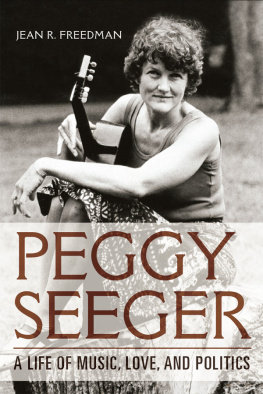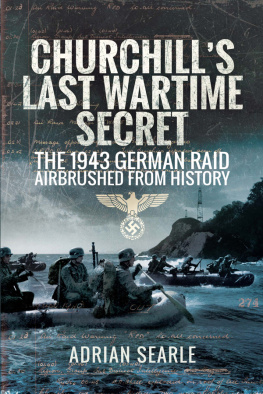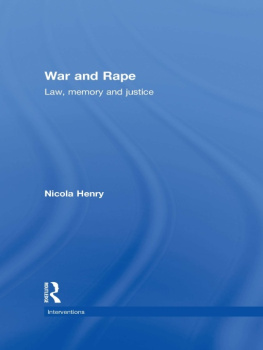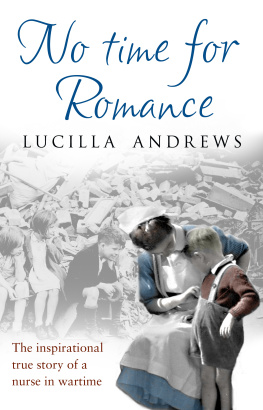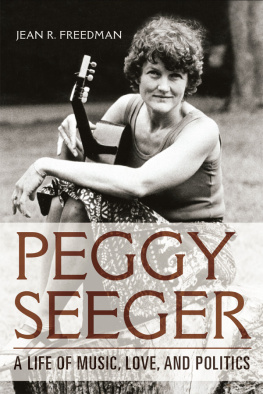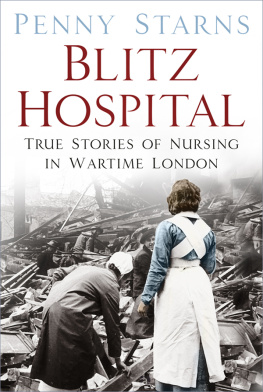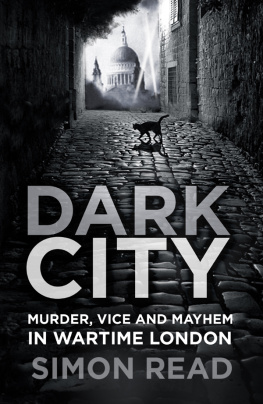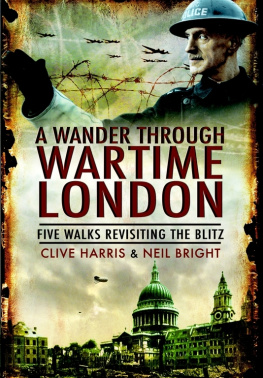Whistling in the Dark
Whistling in the Dark
Memory and Culture
in Wartime London
Jean R. Freedman
Publication of this volume was made possible in part
by a grant from the National Endowment for the Humanities.
Copyright 1999 by The University Press of Kentucky
Scholarly publisher for the Commonwealth,
serving Bellarmine College, Berea College, Centre
College of Kentucky, Eastern Kentucky University,
The Filson Club Historical Society, Georgetown College,
Kentucky Historical Society, Kentucky State University,
Morehead State University, Murray State University,
Northern Kentucky University, Transylvania
University, University of Kentucky, University of Louisville,
and Western Kentucky University.
All rights reserved
Editorial and Sales Offices: The University Press of Kentucky
663 South Limestone Street, Lexington, Kentucky 40508-4008
0302010099 54321
Library of Congress Cataloging-in-Publication Data
Freedman, Jean R. (Jean Rose)
Whistling in the dark : memory and culture in wartime London / Jean R. Freedman.
p. cm.
Includes bibliographical references and index.
ISBN 0813120764 (cloth : alk. paper)
1. World War, 19391945EnglandLondon. 2. World War, 19391945Personal narratives, British. 3. London (England)History18001950. I. Title.
D760.L7F74 1998
This book is printed on acid-free recycled paper meeting the requirements of the American National Standard for Permanence of Paper for Printed Library Materials.
Manufactured in the United States of America
To my parents,
Myrle Neistadt Freedman and Leon David Freedman,
and to the memory of George WagnerWe are all going to have whistles as Mr. Bendall thinks if we are buried, it will be so useful to whistle to our rescuers. This I consider quite useful, and if buried shall whistle with all my might.
From the diary of Vere Hodgson, 28 February 1944
Before he can open the door, we hear a high pitched whistling, rushing noise, and we know its close. Theres an explosion and one hell of a draught, as if someone has left all the doors open. We are both still standing, and Eddie has the door handle in his fist, but the door has gone away. It blew out of me hand. He sounded offended.
From the diary of William Bernard Regan, Christmas 1940
Contents
Acknowledgments
A book is a collaborative endeavor, born in the mind and nurtured by readers, writers, scholars, editors, and communities of people, both living and dead. When the book is ready to face the world on its own, it is important for the author to thank those who have contributed to its growth. My first thanks go to the people of Londonthose who took the time to speak with me during the course of my research, those whom I met through books and archival documents, and the unknown many who kept London going during World War II. I owe a particular debt of gratitude to the people whom I interviewed during the course of my fieldwork. The men and women who shared their experiences of wartime London gave me friendship as well as information, and their presence gives an immediacy to my work. Their words and their memories show that the past still lives within the present.
This book began as a doctoral dissertation at Indiana University. Warm thanks go to my dissertation director, Ruth M. Stone, and to the members of my dissertation committee, Richard Bauman, John Bodnar, and Henry Glassie. Thanks are also due to Sandra Dolby and Roger Janelli, whose seminars allowed me to explore aspects of this research at an earlier date. Special thanks go to Harry Geduld, who allowed me access to his personal library with its fine documentation of wartime London and who shared his own memories of that era.
Scholars from around the world have also been generous with their time. Alice Prochaska and Elizabeth Russell provided a wealth of useful information during my preliminary field trip to London in 1991. David Edgerton and Keith Robbins sent me copies of their publications, which have great relevance and interest for my own work. Alessandro Portelli wrote me a detailed and encouraging letter in response to questions that I had while in the field. Venetia Newall had many helpful suggestions for my research and shared her own experience as a folklorist in London.
Many organizations helped me in the course of my research. The London Goodenough Trust provided the optimum place for a foreign scholar to live in London. The archivists and curators of the Imperial War Museum, the London Museum of Jewish Life, the National Film Archive, the National Sound Archive, and the Public Record Office at Kew were infinitely patient and helpful in finding the massive amounts of information that I needed. In addition, Rickie Burman of the London Museum of Jewish Life and Joy Price of the Grange Museum introduced me to many people who remembered and told me about wartime London. The Institute of Historical Research provided me with a library, the opportunity to meet other scholars, and a very stimulating series of seminars. The Folklore Society gave me the opportunity to meet and share ideas with British folklorists. Thanks also to the British Broadcasting Corporation (BBC) for their splendid documentation of the war years and for their help with information of various kinds.
Funding for my fieldwork was provided by a dissertation year fellowship from the Indiana University Graduate School and a graduate student research fellowship from the Indiana Center on Global Change and World Peace. A Mellon doctoral dissertation write-up fellowship, administered through the Indiana University Department of West European Studies, financed the final year of writing. I would like to gratefully acknowledge all of these funding sources.
Copyright holders have been extremely generous in granting me permission to quote from published, broadcasted, and archival sources. For permission to quote from unpublished papers located in the Imperial War Museum, I would like to thank the copyright holders for the papers of George and Helena Britton, Oswald Edwards, Vere Hodgson, Josephine Oakman, William Bernard Regan and Violet Ivy Regan, and Len Waller. The Public Record Office at Kew allowed me access to a variety of documents, which are listed separately in the references section. Crown copyright material in the Public Record Office is reproduced by permission of the Controller of Her Majestys Stationery Office. April Young Limited, agent for the late Ted Kavanagh, has kindly allowed me to quote from four wartime ITMA programs written by Mr. Kavanagh. These programs are listed separately in the references section. Two wartime broadcasts by the late J.B. Priestley (Postscript to the News: The Epic of Dunkirk, broadcast on 5 June 1940, and Journey into Daylight, broadcast on 11 May 1945) are reprinted by permission of the Peters Fraser and Dunlop Group, Ltd.
At the University Press of Kentucky, I have been privileged to work with a staff blessed with talent, patience, and a sense of humor. My thanks to them all. Thanks also to Leslee Anderson for her sterling job of copyediting the manuscript. The anonymous referees who recommended this work for publication made useful and insightful comments that have greatly benefitted the text.


